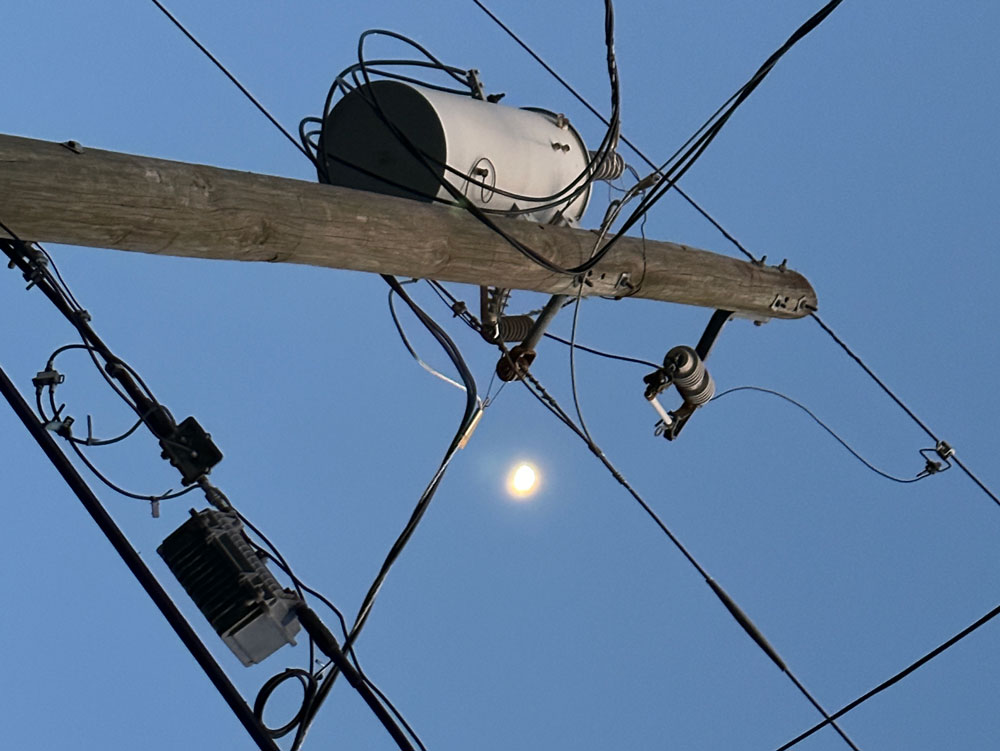In the same way that Palm Coast recently approved a pilot program allowing citizens to raise hens in their backyards, Flagler Beach City Commissioner Rick Belhumeur is interested in permitting citizens to do the same.
“As long as we can draft an ordinance that is easy to follow and that keeps the chickens caged, because as you know, we don’t have massive lots here in Flagler Beach,” says James Sherman, chair of the Flagler Beach Commission, he is open to the idea. Sherman warned that if Flagler Beach doesn’t have free-range chickens, it would resemble the island of Kauai, where hundreds of hens roam freely.
Centuries ago, Polynesian people introduced chickens, dogs, and pigs to the Hawaiian island. Since then, feral hens have taken over the island, much to the chagrin of the local government. Sherman spent a number of years living on Oahu and visited Kauai often, so he has firsthand experience of the island.
In Palm Coast and Flagler Beach, nothing of that sort is anticipated. There are limitations on the Palm Coast program. Eric Cooley, the commissioner of Flagler Beach, is less enthusiastic.It doesn’t seem like a realistic ordinance to me. According to Cooley, some landowners bring chickens here once a year or twice, and the public has repeatedly stated that they do not want them. I wouldn’t mind if they wanted to suggest it for huge properties, but since there aren’t many properties in the city, I’m concerned it would be misunderstood as a benefit. I find it troubling when ordinances are passed to benefit one or two residents.
Belhumeur and the municipal attorney were approached by a Flagler Beach citizen who wanted to implement similar regulations. We’ve discussed this before, but Belhumeur suggested that we might be able to do poultry with some restrictions or without any roosters. I’m not suggesting that they be permitted in 50-by-150-foot lots, but only under specific restrictions. The hens would be kept in cages.
The commissioner requested that City Attorney Drew Smith investigate. Even in the absence of a city regulation, some property owners are keeping hens.
A few years ago, the city considered enacting such an ordinance, but it never proceeded past the debate phase. It has been greatly influenced by the price of eggs. The cost of an egg was less than $2 per dozen until early 2022. By the end of 2022, prices had risen above $4 a dozen, then declined for the majority of 2023 and 2024 until rising once more to above $4 last December, hitting $6.227 in March, the highest level to date, according to the Bureau of Labor Statistics. Since then, prices have significantly decreased, reaching $2.59 per dozen last week.
Backyard chicken rules are something that City Attorney Drew Smith has already worked on for other local governments. “It won’t require much work on my part,” Smith stated. I can adapt it to the city, try my best, and then you people can apply your red pens to it. We’ve done a few. In order to give commissioners a chance to comment before it is prepared for first reading, Smith stated that he would present a draft for discussion rather than a first reading. Before becoming law, the ordinance would go through two readings.
A proposed backyard chicken policy that would have permitted 25 permits in a pilot program was rejected by Palm Coast. When Council member Theresa Pontieri brought the legislation back to life this year and secured council approval for a 50-permit program, four of the five city council members who had previously opposed it were no longer on the council. Participants must be homesteaded property owners. They have to pay a $50 charge for the two-year permit and follow a lengthy set of conditions.
Many thanks, Flagler Beach resident Mark Imhoff informed the commissioners. Our area, which was outside of Orlando in unincorporated Seminole County, permitted the keeping of chickens. And no roosters, just as you mentioned. It was impossible to determine who had chickens and who didn’t. There were chickens everywhere, yet no one went mad. You were able to move them around in your yard on miniature carts, and the hens effectively kept ticks, mosquitoes, and other pests at bay.
Though the topic is discussed so frequently and passionately that it has evolved into a modern version of doctrines formerly discussed at Lateran councils, raising chickens as a way to combat the price of eggs may not be as obvious as it seems.
According to Anfal Al-Hussaini’s findings from The Hen House last week, raising a flock of five chickens in your backyard for a period of five years will cost no more than $69 per month. A family might purchase 14 dozen eggs from the shop each month at such price. A fairly pricey $1,500 handmade chicken coop is included in the deal. (Coops purchased from stores can be pricey, but they are not very costly to begin with.)According to Fromscratchfarmstead.com, the initial costs are $720 and the monthly expenses are $200. This means that just the monthly expenses may purchase 40 dozen eggs.
Advocate Gubba Homestead acknowledges that it might be closer to a break-even point, but contends that focusing just on the bottom line ignores other, less obvious advantages of chicken farming.











